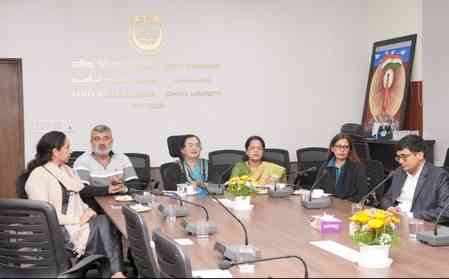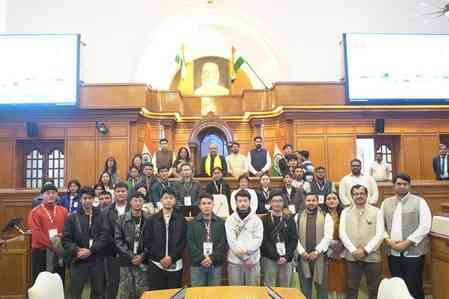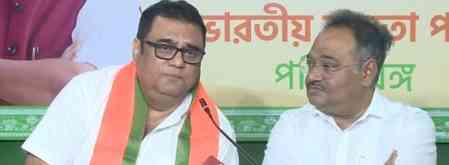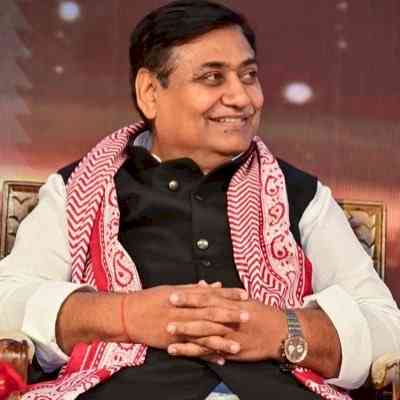Prof Pradeep Kumar Memorial Lecture delivered by Prof G. Gopa Kumar
Professor Kumar presented an overview of the way language question has unfolded in India since the colonial days
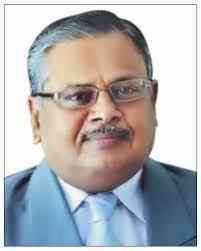
Chandigarh, December 23, 2021: The Professor Pradeep Kumar Memorial Lecture was delivered by Professor G. Gopa Kumar, former Vice Chancellor, Kerala Central University. The lecture was chaired by Emeritus Professor B S Brar of Panjab University. The lecture is held annually in memory of Professor Pradeep Kumar, a former faculty member in the department of Political Science.
Speaking on ‘Language Policy and Policies of South Indian states’, Professor Kumar presented an overview of the way language question has unfolded in India since the colonial days. Congress party recognized the significance of language as the basis of shaping the political geography of India. In 1920 Nagpur session the party reorganized its provincial units on linguistic basis. Nehru report, 1928 reiterated the demand of the linguistic reorganisation of provinces. In independent India, after initial hesitance, the Nehru government felt compelled to recognize the principle of linguistic federalism. Consequently present-day linguistic states like Tamil Nadu, Andhra Pradesh, Karnataka, Kerala, Maharashtra, Gujarat, Punjab, Himachal Pradesh and Haryana were re-organized/formed. Earlier, facing resistance from the non-Hindi speaking members, the constituent assembly had also accorded equal status to as many as 14 Indian languages. To concede to the demands of those who wished to promote Hindi as the national language, the three-language formula was implemented in 1968 based on BG Kher Commission recommendation. Accordingly, Hindi, English and a regional language were to be the part of the official language policy of the constituent states.
Focusing the lecture on the southern states, Professor Kumar observed that even after reorganisation, linguistic minorities remained in different proportions. It explains partly why the states/union territory have remained distinctive in their approach towards three-language formula. Kerala having sizable Kannadiga and Tamil speakers along with Malayali speaking majority has implemented it in the spirit of linguistic federalism. Tamil Nadu having overwhelming Tamil population has clearly insisted for a two-language formula i.e. Tamil and English only and has vehemently opposed Hindi or any other language since the days of Justice party/DK and DMK. The influence of Sanskrit has been consciously purged from Tamil as it is held as the Aryan language. Interestingly, Malayali and Telugu have lot of affinity with Tamil and there is a sizable Tamil presence in other states including Karnataka and Kerala. Puducherry like Kerala comes across as a ‘model state’ standing for composite linguistic culture. It has officially recognised along with Tamil, English and French the other languages Telugu and Malayalam. Karnataka (like neighbouring Maharashtra), having sizable migrant linguistic communities in the near past has now been concerned about the decline of Kannada/Kannadiga. A third of the people living in Karnataka are non-Kannadiga speaking but the state government insists that Kannadiga shall remain compulsory for education and jobs. Andhra Pradesh underwent the process of re-reorganisation as Telangana people held that the Telugu they spoke was the ‘authentic’ one and the Telugu of the coastal Andhra was ‘corrupted’ by Sanskrit.
Professor Kumar concluded that the three-language policy has not been successful on the ground both in the Hindi speaking and non-Hindi speaking states. The possible explanation lies in the aversion of people to learn other languages as well as narrow provincial chauvinism promoted by the political forces for electoral gains. What is needed is to promote the inculcation of rich and diverse Indian literature through translations. It would enable people of different linguistic regions to understand the value of other linguistic cultures. However, left to itself, language, dialect and even script have been used to divide the people for sectarian purposes. Here lies the critical importance of learning and understanding other cultures and values. Processes of globalisation have witnessed the emergence of the middle classes in a big way and that has led to inter-state migrations on a vast scale. In a reverse to 1950s, southern states have now been witnessing huge influx of professionals/workers from the Hindi speaking northern states to fill in the gap created by exodus of local trained youth to the Gulf and to the West. The two-way migration over the period has led to the greater learning of each other languages. Lastly, new education policy is fair in its multi-lingual approach especially on its emphasis on promotion of Indian languages. It would be enabling greater access at the school and college level.



 cityairnews
cityairnews 
